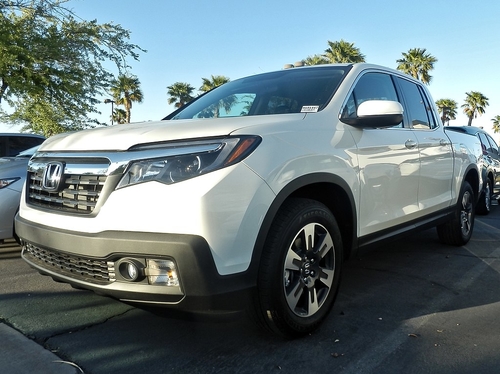
American Honda Motor Company is recalling more than 400 recently built vehicles containing incorrectly mounted side airbags.
The Torrance, California-based manufacturer will recall 403 2019 Honda Ridgeline and 2019 Honda Pilot vehicles built between Oct. 19 and Oct. 25, 2018.
If you are an owner of a lemon Honda, contact Allen Stewart’s team of experienced lemon law attorneys today.
The affected vehicles contain curtain airbags meant to protect occupants during side impact crashes. However, these vehicles contain excessively large mounting holes for the clip securing the right center trim panel that may fail during side airbag deployment. This can inhibit proper airbag deployment, increasing injury risk and throwing the vehicles out of compliance with federal motor vehicle safety standards.
Engineers first discovered a loose right center pillar garnish during vehicle assembly on Oct. 23, 2018. Honda placed a hold and stop shipment on all vehicles and made an inquiry to the component supplier, Jefferson Southern Corporation of Rockmart, Georgia.
The supplier told Honda a recent die mold repair failed and created burrs in the sheet metal. Technicians removed the burrs with grinding tools, inadvertently enlarging the mounting holes.
Honda, after identifying the suspect part range and population, measured the affected right center pillar garnish clips’ retention force. Vehicles whose clips met retention force specifications were released from hold. However, after finishing its investigation Honda decided on Nov. 20, 2018 to conduct a safety recall.
Honda will notify owners and dealers will install a bracket on the right center pillar that will securely hold the center pillar trim clip for free. The recall is expected to begin January 25, 2019. Owners may contact Honda customer service at 1-888-234-2138. Honda’s number for this recall is D3D. Owners can also visit the NHTSA’s website, and enter their VIN to see if their vehicle is included in any recalls.
Your vehicle’s manufacturer is legally required to fix any recalled problems for free. If the dealership refuses to fix the part or tries to charge you for the repair, contact the manufacturer immediately. The Highway Safety Act of 1970, which created the NHTSA, requires car manufacturers to pay for the recall and replacement of a defective part.
If the manufacturer fails to repair, replace, repurchase, or provide your recalled vehicle’s loss value, they are violating the warranty and a lawyer may be able to help you. Lemon law attorneys help their clients by dealing directly with the manufacturer on the clients’ behalf, working to promptly resolve the issue and get their clients back on the road. Thanks to the Magnuson-Moss Warranty Act, attorneys can seek their fees directly from the manufacturer, meaning a client can obtain legal counsel without having to pay attorneys’ fees directly out of pocket.
